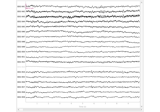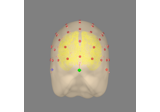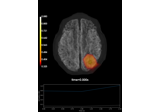mne.make_forward_solution#
- mne.make_forward_solution(info, trans, src, bem, meg=True, eeg=True, *, mindist=0.0, ignore_ref=False, n_jobs=None, verbose=None)[source]#
Calculate a forward solution for a subject.
- Parameters
- info
mne.Info| path-like The
mne.Infoobject with information about the sensors and methods of measurement. Ifpath-like, it should be astrorpathlib.Pathto a file with measurement information (e.g.mne.io.Raw).- transpath-like |
dict| instance ofTransform|None If str, the path to the head<->MRI transform
*-trans.fiffile produced during coregistration. Can also be'fsaverage'to use the built-in fsaverage transformation. If trans is None, an identity matrix is assumed.Changed in version 0.19: Support for
'fsaverage'argument.- srcpath-like | instance of
SourceSpaces Either a path to a source space file or a loaded or generated
SourceSpaces.- bempath-like |
dict Filename of the BEM (e.g.,
"sample-5120-5120-5120-bem-sol.fif") to use, or a loaded sphere model (dict).- meg
bool If True (Default), include MEG computations.
- eeg
bool If True (Default), include EEG computations.
- mindist
float Minimum distance of sources from inner skull surface (in mm).
- ignore_ref
bool If True, do not include reference channels in compensation. This option should be True for KIT files, since forward computation with reference channels is not currently supported.
- n_jobs
int|None The number of jobs to run in parallel. If
-1, it is set to the number of CPU cores. Requires thejoblibpackage.None(default) is a marker for ‘unset’ that will be interpreted asn_jobs=1(sequential execution) unless the call is performed under ajoblib.parallel_configcontext manager that sets another value forn_jobs.- verbose
bool|str|int|None Control verbosity of the logging output. If
None, use the default verbosity level. See the logging documentation andmne.verbose()for details. Should only be passed as a keyword argument.
- info
- Returns
- fwdinstance of
Forward The forward solution.
- fwdinstance of
See also
Notes
The
--gradoption from MNE-C (to compute gradients) is not implemented here.To create a fixed-orientation forward solution, use this function followed by
mne.convert_forward_solution().Note
If the BEM solution was computed with OpenMEEG in
mne.make_bem_solution(), then OpenMEEG will automatically be used to compute the forward solution.Changed in version 1.2: Added support for OpenMEEG-based forward solution calculations.
Examples using mne.make_forward_solution#
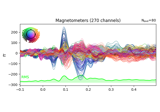
Working with CTF data: the Brainstorm auditory dataset
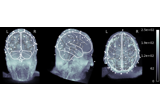
EEG source localization given electrode locations on an MRI
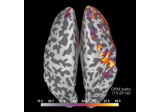
Compute source power spectral density (PSD) of VectorView and OPM data
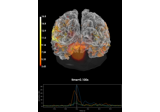
Compute MNE inverse solution on evoked data with a mixed source space
